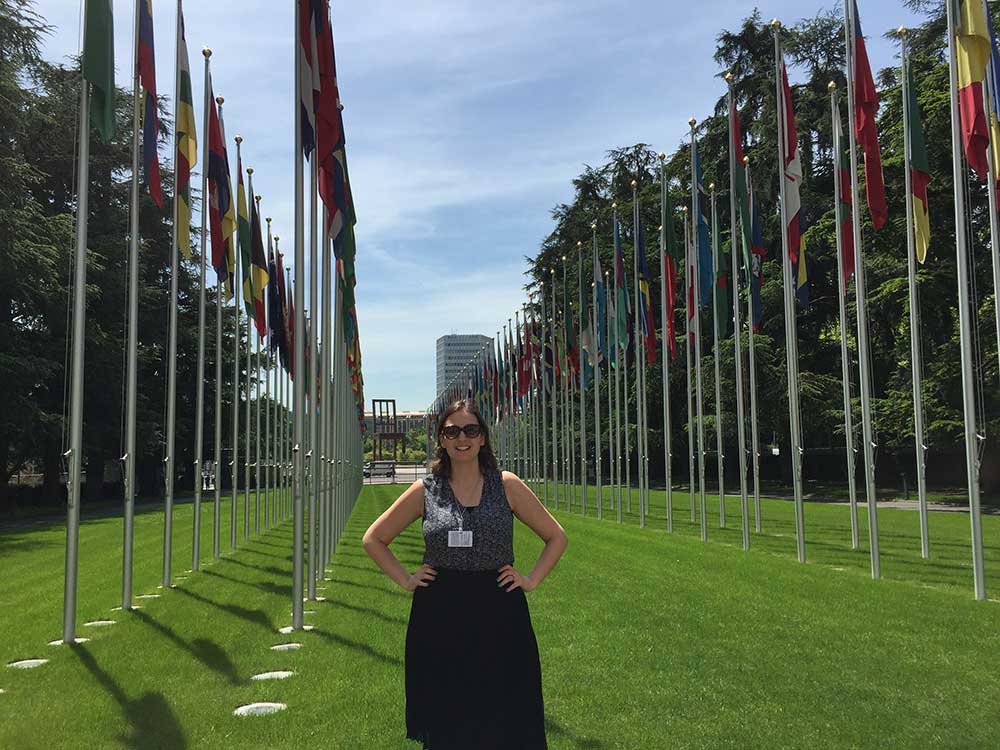By Brittney Rezaei – IHRC student
Earlier this month, the United Nations Human Rights Council (HRC) reviewed the U.S. human rights record over the past four years. Government representatives from around the world called on the U.S. to increase resources and efforts to end human trafficking in the U.S.
Every four years the HRC reviews the human rights record of all member states of the United Nations in a process called the Universal Periodic Review (UPR). The SCU International Human Rights Clinic (IHRC) submitted a stakeholder report to the HRC in advance of the U.S. review, detailing the gaps in the U.S. response to human trafficking. The report and advocacy in the UPR process is just one part of the expansive work the Santa Clara Law community and the IHRC has done to support the fight to eradicate human trafficking. The stakeholder report provided recommendations based on the clinic’s research and findings on human trafficking in the Bay Area.
On May 11, I was able to attend the review session in Geneva before the HRC. During the three-hour session, states made many important human rights recommendations to the U.S., 348 recommendations in total. Government representatives from Lebanon, Armenia, Portugal, Sudan, Maldives, and Thailand called on the U.S. to increase efforts to end human trafficking in the U.S. Specifically, the representative from Portugal call for “an increase in resources for nationwide anti-trafficking awareness programmes, including law enforcement training.” Canada called upon the U.S. to “establish, where appropriate, specialized services required for children and women who have been trafficked or sold for sexual exploitation.”
States also addressed the important gap in labor law that IHRC addressed in its stakeholder report. Belgium called upon the U.S. to “remove the agriculture exemption in the Fair Labor Standards Act which would raise the age for harvesting and hazardous work for hired children taking care to distinguish between farm owner and farm worker children.” In addition Canada called upon the U.S. to “ensure protection against exploitation and forced labour for all categories of workers, including farm and domestic workers, through such measures as a review of appropriate labour regulations.”
Additional recommendations addressed significant U.S. human rights concerns including police brutality and excessive use of force, the death penalty, immigration detention, and investigation of the allegations of torture documented in the recent Senate torture report.
The U.S. has until September to respond to the 348 recommendations and will have the next four years to implement the recommendations it accepts.
If you are interested in this or other human rights issues, consider signing up for the Clinic next semester! The International Human Rights Clinic provides a great opportunity for law students to gain practical experience and be on the front lines of human rights advocacy while in law school. If you have any questions regarding the Clinic’s projects or how to get involved, please contact Professor Francisco Rivera (fjrivera@scu.edu) or Britton Schwartz (bschwartz@scu.edu).
